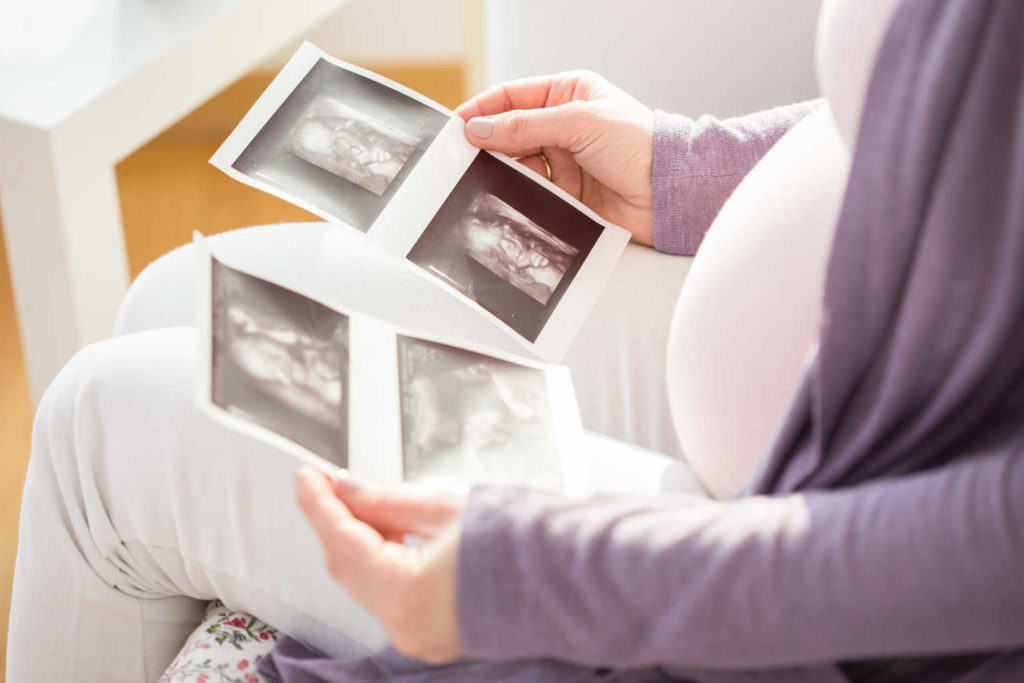Contents:
- Medical Video: Twin-Twin Transfusion Syndrome / TTTS
- How likely is a miscarriage?
- What complications can I experience while pregnant with twins?
- 1. Gestational diabetes
- 2. Anemia
- 3. Obstetric cholestasis
- What complications can affect my baby?
- Can I prevent these complications?
- Is there a risk of preterm birth?
- Are stillborn babies more common in twins?
Medical Video: Twin-Twin Transfusion Syndrome / TTTS
Most pregnant women twins give birth to healthy babies. Don't worry if you hear that pregnant twins have a high risk.
It is true that fewer complications often occur in people who are pregnant with twins. These complications are relatively rare, but require medical attention, so it is important to be vigilant. Some complications can only be known during antenatal care, so make sure you do regular checks.
How likely is a miscarriage?
If you are pregnant with more than one baby, the risk of miscarriage will be greater than the pregnancy with one baby. It cannot be mentioned exactly how much the risk of miscarriage is, because miscarriages in early pregnancy are usually not identified.
Some miscarriages occur in the first 12 weeks of pregnancy. Sometimes one baby falls, but if this happens in the first trimester, it usually does not affect the growth of surviving babies. A dead fetus will usually disappear (vanishing twin syndrome) and you don't feel symptoms.
Vanishing twin syndrome occurs between 21% -30% of pregnancies of twins. In fact, this happens more than is known, because many twin pregnancies are unknown from the start.
Not that you will not feel disappointed. Maybe you have imagined for several weeks, like having twins. It's natural if you feel sad and lost. Telling stories with other mothers in certain communities might help.
What complications can I experience while pregnant with twins?
If you are pregnant with twins, you are more likely to experience high blood pressure (gestational hypertension) 2-3 times compared to if you are pregnant with one baby.
You are three times more at risk of preeclampsia if you are pregnant with twins than are pregnant with one baby. This is because pregnant more than one baby puts more pressure on your placenta. A survey found that 13% of pregnant women twins experienced this condition.
During each pregnancy checkup, your midwife will check your urine and blood pressure to see signs of preeclampsia. You will be advised to take a low dose of Aspirin (75 mg) every day from 12 weeks of pregnancy to reduce the risk of high blood pressure and pre-eclampsia, if:
- This is your first pregnancy
- You are 40 and above
- You have a family with a history of preeclampsia
- Your body mass index or BMI is 35 or more
- It's been 10 years since your last pregnancy
1. Gestational diabetes
Occurs 2 or 3 times more often if you have more than one baby.
Your urine will be checked for sugar levels during antenatal care. If your doctor suspects you have gestational diabetes, you will undergo a glucose tolerance test.
2. Anemia
Occurs because of an increase in blood flow which decreases iron levels. Your doctor will recommend an iron supplement. Having mild anemia will not harm your baby. But you need to take care of yourself, because anemia can make you feel tired quickly.
Because anemia is more common in mothers who have more than one baby, you must check your blood again when the pregnancy reaches 20-24 weeks.
3. Obstetric cholestasis
Obstetric cholestasis is a rare condition that attacks the liver, caused by pregnancy hormones estrogen and progesterone. This is more common in people who are pregnant with twins, due to higher hormone levels.
This condition causes extreme itching without a rash. Certain itching is common in pregnancy, but if the symptoms are severe, call your doctor or midwife immediately.
What complications can affect my baby?
Obstructed fetal growth, where one baby does not grow as it should, can cause complications during labor. Many babies are born small but healthy. Scan routine monitoring of your baby's development can detect problems.
Twin-to-twin transfusion syndrome (TTTS), where one baby uses another baby's blood supply, is a rare complication with serious potential. This condition occurs in up to 15% of identical twins who share the placenta. One baby (recipient) get too much blood and the other baby (donor) only gets too little blood.
Donor babies may shrink and experience anemia due to lack of blood supply. High blood volume in the baby's recipient can put pressure on the heart and cause heart failure. If your twins share a placenta, your pregnancy will continue to be monitored with frequent ultrasound scan for symptoms of TTTS.
Can I prevent these complications?
Many complications in multiple pregnancies are not related to your behavior or lifestyle. However, knowing early if you have twins and whether they share a placenta can help. The doctor will have plenty of time to detect, monitor and manage complications.
Maintaining health can help you overcome twin pregnancies with complications that can arise during childbirth.
Get to know the warning signs of preeclampsia, keep a healthy diet and keep it hydrated. Make a visit for a pregnancy check-up, do light exercise if allowed by your doctor. If you smoke, the best thing you can do for your baby is to stop.
Is there a risk of preterm birth?
40 weeks is the full term for one baby's pregnancy and 37 weeks is the full term for twins' pregnancies. Premature birth, where your baby is born earlier than expected, is one of the main complications associated with multiple pregnancies.
More than half of all twins are born before 37 weeks and 10% are born before 32 weeks. The most at risk are premature babies born before 30 weeks.
Because twins tend to be born early, they need special care after birth. In 2012, 46% of parents with twins had one or both babies who needed special care at the hospital after birth.
Are stillborn babies more common in twins?
The number of twins born still higher. Twelve out of 1,000 twin births are stillbirths, and the number reaches 31 out of 1,000 in the birth of triplets. Compare this with a single birth, which is only 5 out of 1,000. Infant mortality in the first month is also easier for twins.
The risk of dying in twins increases after 38 weeks in the womb. Therefore, if your twins are not born after 38 weeks, it is recommended to have a caesarean section or induction.
Identical twins who share the placenta experience complications more easily, and the risk of death increases, so it is recommended that babies be born early, at 37 weeks.
READ ALSO:
- 4 Problems That Mothers Often Face When Pregnant Twins
- Could Twin Pregnancy Without Twins?
- Could it be possible that a twin baby was born through normal labor?












